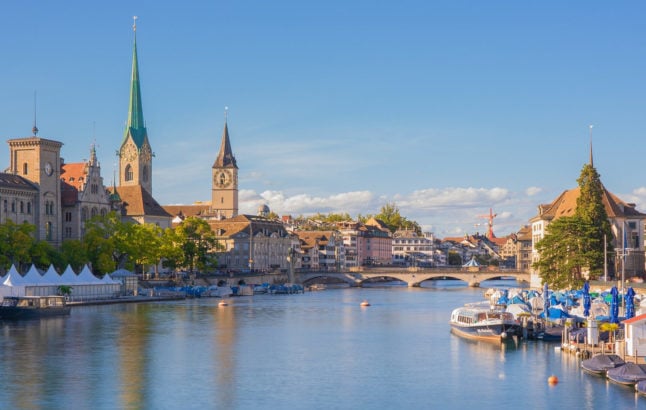Nieder, who cooks at the Dolder Grand Hotel in Zurich, becomes just the seventh chef to be awarded 19 out of a possible 20 points in the restaurant guide awards.
Speaking to Gault & Millau, Nieder’s wife Daniela said: “Chef of the Year; I’m proud of him! Heiko’s dream has come true.”
Marie Robert, of Café Suisee in Bex (Vaud), was named female ‘Chef of the Year 2019’ after being awarded a total of 16 points.
Toutes nos félicitations à Marie Robert élue cuisinière de l année par le Gault&Millau ??? pic.twitter.com/Kex2F1vlPI
— LenaKa (@lenakafoodfoto) October 8, 2018
READ MORE: Lovely Jubbly: UK Celebrity Chef Jamie Oliver plans to open Zurich restuarant
Four chefs were named 'Discoveries of the Year'; Pascal Stefee (Roots in Basel), Jeroen Achtien (Vitznauerhof in Vitznau/Waldhotel in Davos) and Marco Campanella (Eden Rock in Ascona) all earning 16 Gault & Millau points, while Bert De Rycker (Le Rawyl in Randogne) picked up 15 points.
Anna Junge, of Schloss Schauenstein in Fürnstenau, was named 'Sommelier of the Year' while Sébastien Quazzola, from Le Richemond restaurant in Geneva, won the 'Pastry Chef of the Year' award.
Bürgenstock Resort, in Lucerne, was named 'Hotel of the Year'.
Gault & Millau rates restaurants on a scale from 1 to 20, the latter being the highest. Points are awarded on the basis of food quality.
The award is French originally, but has multiple editions across the world – including here in Switzerland.
More information can be found in French on the Gault & Millau website.



 Please whitelist us to continue reading.
Please whitelist us to continue reading.